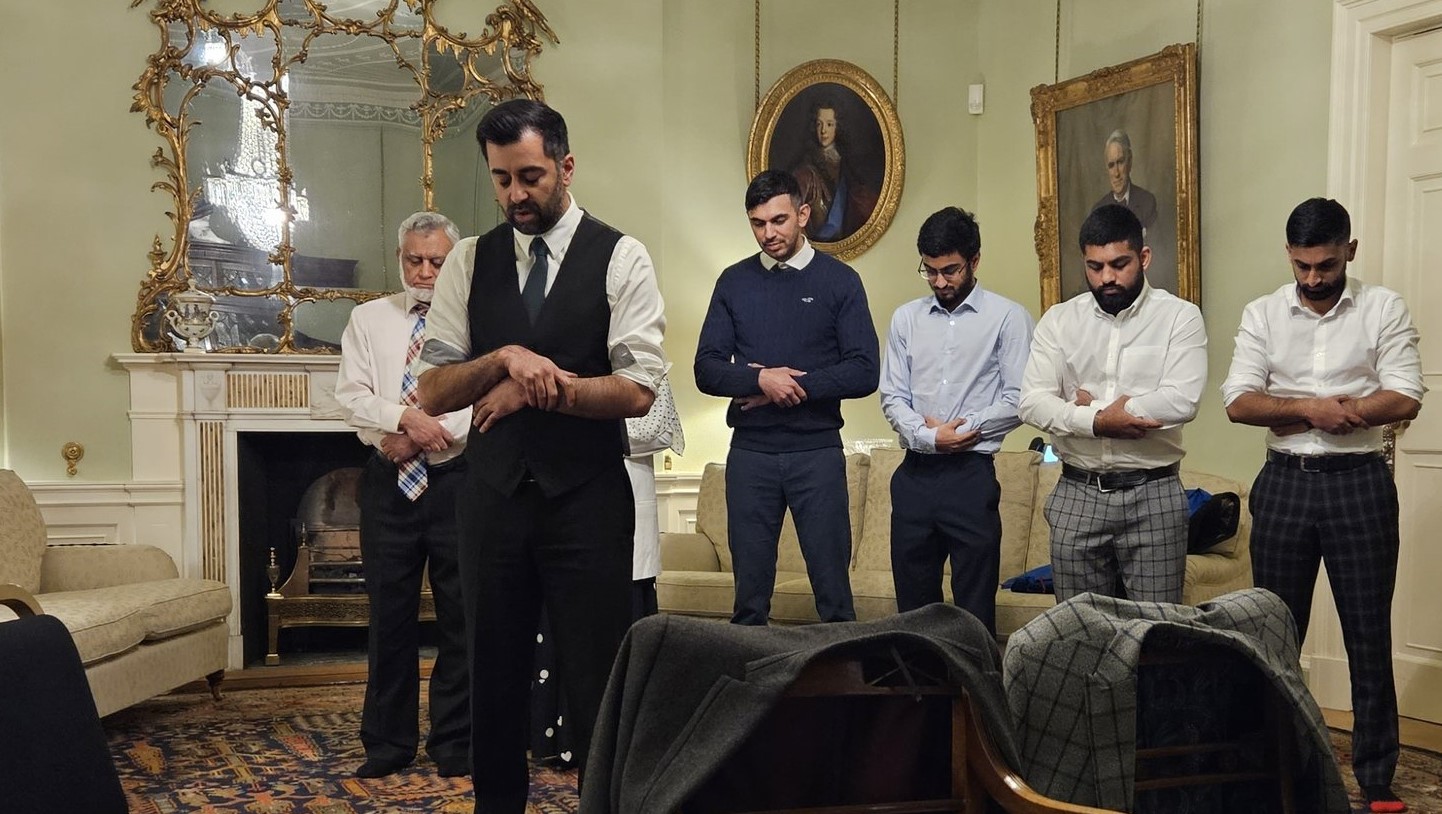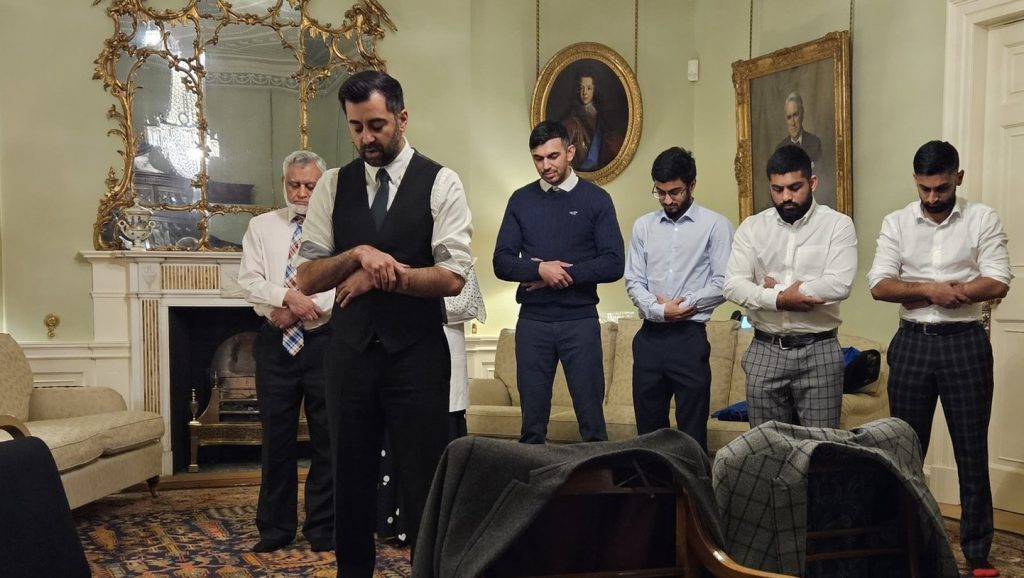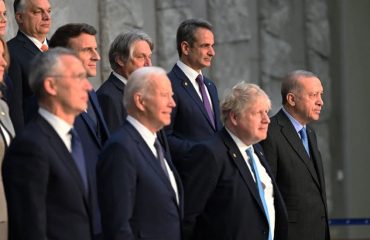

The new Scottish First Minister, Humza Yousaf, is seen leading Muslim members of his team and his family in prayer on his first day in his official residence. Yousaf is a politician in favour of separation from the UK and EU membership, as well as gender equality and LGBT rights. (Photo: Twitter / @HumzaYousaf )
This was my first thought when I saw a photo of Humza Yousaf, the leader of the Scottish National Party, leading his family and Muslim team members in prayer after breaking their fast on his first day in the first minister’s residence. Could the first Muslim Prime Minister of a European Union member state be a Scot?
Answer: Yes, it can.
Yousaf leads the Scottish National Party (SNP), which is in favour of independence from the United Kingdom. On March 27, he won the elections, and today, on March 29, he takes office as Scotland’s first Muslim first minister from an immigrant background.
Yousaf was born to Pakistani immigrants in Glasgow. Rishi Sunak, the son of Hindu Indian immigrants, has been the Prime Minister since October 25, 2022.
India was a colony of the British Empire until 1947. For decades, Mahatma Gandhi and Muhammad Ali Jinnah led the fight to get India out of that position. Soon after, Indian Muslims were separated from the Hindu majority, forming Pakistan. This separation later resulted in the independence of Bangladesh.
Call it “revenge for colonialism” if you like, but the fact that Yousaf became the first minister in Scotland after Sunak in the UK is another indicator of the change in global balances.
Don’t ask why the EU
Scotland will hold a referendum on independence on October 19, 2023. So far, the separatists led by the SNP have never won. One of the reasons for this was the UK’s EU membership; Scottish independence would mean breaking away from the EU and its advantages.
But now the picture is reversed. After the UK’s decision to leave the EU (supported by Boris Johnson and Sunak), the prospect of an independent Scotland’s EU membership has opened up.
The obstacle for Scottish nationalists has now turned into an advantage.
That is why, if Scotland becomes independent and becomes a member of the EU, which already has all the standards of the EU thanks to its past membership, there is a possibility that the first Muslim prime minister of the EU will be a Scot.
What goes around comes around. Yes, of course, I think the situation in Türkiye, given the missteps of both Brussels and Ankara, could have been very different.
From judicial independence to equality between men and women, Türkiye took a big step back from the EU standards, which were established in the early years of the AKP’s rule with the cooperation of the CHP.
How did the Muslim Scottish leader win?
Now hold on tight. One of the factors in the rise of Yousaf, who is of Pakistani origin and religious enough to lead prayers in his office, was that he was also a strong advocate of gender equality. Despite his local and national rivals in the SNP, he is a champion of gender reform in Scotland. One of his campaign promises was to defend LGBT rights.
When I read this, I remembered that Erdoğan, who was the first leader in the world to sign the Istanbul Convention against violence against women, withdrew his signature on the grounds of LGBT and family unity, despite the fact that it had nothing to do with it, due to the blackmail of political Islamist communities.
The same goes for Sunak. In India, Prime Minister Narendra Modi is a staunch Hindu nationalist and fiercely opposed to different sexual orientations, but the British prime minister of the Hindu faith has risen to the leadership of the Conservative Party and the position of Prime Minister.
It is important to defend freedom. The AKP came to power by defending freedoms and democracy; the current situation is obvious.
Those who resist change in Türkiye
Do you think Sunak and Yousaf would have been able to rise in politics in their ancestral countries, India and Pakistan, under the weight of the religious-nationalist atmosphere? You know the answer: no.
Let us remind you before we finish. Leo Varadkar, Prime Minister of the Republic of Ireland, was born to an Indian father and an Irish mother. The Mayor of London, Sadiq Khan, is of Pakistani origin and a leftist Muslim from the Labour Party.
The world is changing, and in Türkiye, those who resist change and progress are still tooting their horns.
Let’s see whether those who want change or those who say “this is fine” will win in the May 14 elections, where even a single vote is of great importance.


